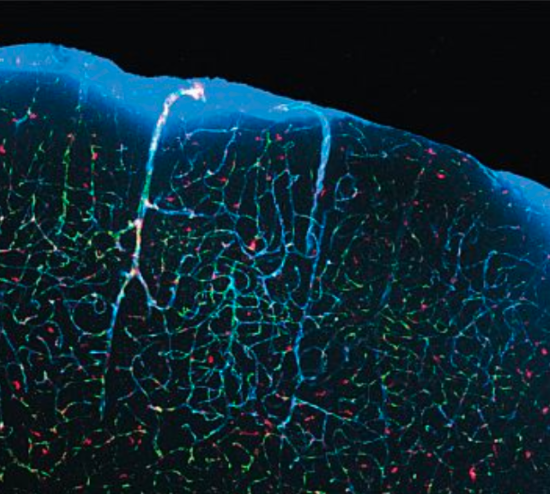Have you ever wondered what happens to your brain during sleep? You might know that the average person spends about one third of their life asleep. You are likely aware that during sleep you are unconscious of your surroundings and that your muscles are temporarily paralyzed so you don’t act out your dreams. But did you know that when you sleep your brain actually shrinks?! Scientists discovered this fairly recently, and it all started with a mice study in 2013.
In 2013, a study funded by the National Institutes of Health (NIH), a part of the US Department of Health, found proof that, during sleep, mice’s brains shrink. The researchers injected dye into the mice’s brains and found that when the mice were asleep, the flow of the cerebrospinal fluid (CSF)*, the protective liquid surrounding the brain, increased significantly compared to when they were awake.
The reason is that as the brain shrinks during sleep, the space between brain cells increases by about 60%, which allows the CSF to flow much more easily and efficiently into the brain.

Six years later, another study finally proved that the same processes are also present in the human brain. In a Boston University Lab, Laura Lewis and her colleagues put electroencephalography electrode caps on participants and had them sleep in an MRI scanner, confirming that in humans, CSF also flowed more during sleep. Lewis realized that when we are asleep, neurons begin to synchronize, and as a result, less blood flows into the brain, allowing more CSF to flow through instead, ‘washing away’ metabolic waste products such as beta-amyloid. This means that as the fluid circulates during sleep, the fluid not only clears your brain from toxins but actually defends you from neurodegenerative diseases like Alzheimer’s!
But what happens to these vital processes if you don’t sleep enough? Are you more at risk of developing a neurodegenerative disease? According to another NIH study in 2019, sleep deprivation can actually cause a 5% increase in beta-amyloid. In other words, sleep deprivation could increase the number of toxins in your brain with potentially alarming consequences. Further studies on a more diverse population are needed to obtain conclusive evidence to prove that sleep deprivation is in fact correlated with Alzheimer’s, however.
These findings are monumentally important because they may pave the way for new treatments of neurodegenerative diseases by increasing the amount of CSF in your brain. Scientists continue to experiment and have found several connections between CSF, Beta-amyloid, and Alzheimer’s, and although future treatments are still being created, ways of prevention have been updated. Exercise, increased light exposure and, of course, sleep are the most important to prevent Alzheimer’s. “We need sleep. It cleans up the brain,” says Dr. Nedergaard, the neuroscientist who led the 2013 study.

